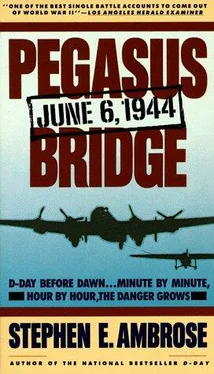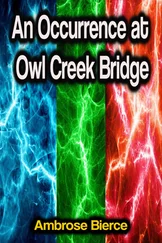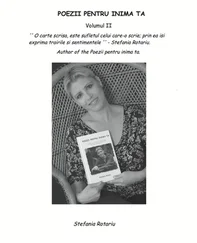Stephen Ambrose - Pegasus Bridge
Здесь есть возможность читать онлайн «Stephen Ambrose - Pegasus Bridge» весь текст электронной книги совершенно бесплатно (целиком полную версию без сокращений). В некоторых случаях можно слушать аудио, скачать через торрент в формате fb2 и присутствует краткое содержание. Жанр: История, на английском языке. Описание произведения, (предисловие) а так же отзывы посетителей доступны на портале библиотеки ЛибКат.
- Название:Pegasus Bridge
- Автор:
- Жанр:
- Год:неизвестен
- ISBN:нет данных
- Рейтинг книги:5 / 5. Голосов: 1
-
Избранное:Добавить в избранное
- Отзывы:
-
Ваша оценка:
- 100
- 1
- 2
- 3
- 4
- 5
Pegasus Bridge: краткое содержание, описание и аннотация
Предлагаем к чтению аннотацию, описание, краткое содержание или предисловие (зависит от того, что написал сам автор книги «Pegasus Bridge»). Если вы не нашли необходимую информацию о книге — напишите в комментариях, мы постараемся отыскать её.
Pegasus Bridge — читать онлайн бесплатно полную книгу (весь текст) целиком
Ниже представлен текст книги, разбитый по страницам. Система сохранения места последней прочитанной страницы, позволяет с удобством читать онлайн бесплатно книгу «Pegasus Bridge», без необходимости каждый раз заново искать на чём Вы остановились. Поставьте закладку, и сможете в любой момент перейти на страницу, на которой закончили чтение.
Интервал:
Закладка:
Morgan and his people decided to meet the threat by placing the 6th Airborne between the Orne waterways and the River Dives. There were many changes in the COSSAC plan after January, 1944, when Eisenhower took over SHAEF (Supreme Headquarters, Allied Expeditionary Force) and Montgomery took over at 21st: Army Group, which commanded all the ground forces; the most important change was the widening of the assault area from three to five divisions. But one COSSAC decision that remained unchanged was the one that placed 6th Airborne on its own, east of the Orne River, with the task of holding off armoured counter attacks. How to do it was left to General Gale.
D Company had begun its flight training in little Waco gliders. To begin with Howard concentrated on exit drill. The door was open before the glider touched down and it was 'move, move, move' when the glider hit the ground. Again and again Howard reminded the men that they were 'rats-in-a-trap' so long as they were inside.
The chief novelty of flying in a glider was one Howard could not get over. As General Sir Napier Crookenden wrote in Dropzone Normandy: 'Since the glider on the end of its tug-rope moved in a series of surges as the tug-rope tightened and slackened, and was subject to the normal pitching, rolling and yawing of any aircraft, few men survived more than half an hour without being sick. The floor was soon awash with vomit, and this in itself was enough to defeat the strongest stomach.' Howard could not get away from being sick; he threw up on all twelve of his training flights. Fortunately for him, this was not like being seasick, with its long recovery time. After being sick on a glider flight, Howard was fit and ready as soon as his feet hit the ground.
Howard's sickness gave the men a great laugh, something the company badly needed as it was in danger of going stale. Wally Parr described morale in late 1943, when the Yanks began appearing:
'Then in came the big spending Americans at Tidworth and the fights that used to take place in Salisbury was nobody's business, 'cause from Tidworth you had to go through Bulford by transport to get to Salisbury, and they were stationed, thousands of them, mountains of planes at Tidworth there and there was sheer frustration all the time, you know, and it was nothing unusual to go in Saturday night, you've got a couple of bob in your pocket, a couple of beers and then, of course, the fights usually started. In the majority of cases the birds went with the Yanks, 'cause the Yanks' had more money and could show them a good time.'
In barracks, there were worse fights, as Parr relates:
'We would be sleeping, midnight, and all of a sudden the door burst open and in would come a load of screaming maniacs from Sweeney's platoon, throw the beds up in the air, the whole lot. I'm talking about "thunder-flashes" that we used to use for exercises and that, just throwing them about the place, left, right, smoke stuff, a lot of it. It was sheer vitality coupled with total frustration.'
Parr, by this time a corporal in charge of the snipers, could not stand the boredom any longer.
'Me and Billy Gray and another fellow was bored one night so we decided, just for the fun of it, we'd go and rob the NAAFI so we waited until it was pretty dark and then we drifted off to sleep and forgot it, then we woke up about five o'clock and thought, ah, Hell, we might as well, so we went over and we broke into the NAAFI and we emptied it of soap, soap powder and everything and came back with it in sackfuls which we spread all over the cobblestones and pavement. A nice rain stirred it up. You've never seen so much soap in all your life. It was bonjour soap, personnel, oxydyl, everything was foam.'
Howard busted Wally back to private and sentenced him to a fortnight in jail; he put Billy Gray and the other man in the jail for twenty-eight days. Howard's colonel, Mike Roberts, wanted to RTU Private Parr, but Howard protested that the punishment was excessive, and in any case told Roberts, 'Parr might only be a private but he is the man that when I get to the other side he will be promoted straightaway, he is a born leader.' Roberts let Howard keep Parr. There were a number of similar cases; Howard called them 'my scallywags' and says, 'when we got to the other side, they were the best. In battle they were in their natural environment. Unfortunately, most of them were killed because of their nature and their way of going about things.' He did re-promote Parr on D-Day plus two.
Howard's solution for boredom was to keep the men physically exhausted, and he drove himself hardest of all. He would go for long periods with only two or three hours of sleep per day, preparing himself for what he anticipated would be a major problem in combat - making quick decisions with an exhausted mind.
Howard also set out, on his own, to make D Company into a first-class night fighting unit. It was not that he had any inkling that he might be landing at night, but rather that he reckoned that once in combat, his troops would be spending a good deal of their time fighting at night. He was also thinking of an expression he had heard was used in the German army: 'The night is the friend of no man.' In the British army, the saying was that 'the German does not like to fight at night'.
The trouble was, neither did the British. (Nor did the Canadians, Americans, or French for that matter.) The Russians and Chinese seemed to be best in this night-fighting business, possibly because while Western men were afraid of the dark, having lived all iheir lives with electricity, Eastern men were accustomed to it. Howard decided to deal with the problem of fighting in unaccustomed darkness by turning night into day. He would rouse the company at 2000 hours, take the men for their run, get them fed, and then begin twelve hours of field exercises, drill, the regular paperwork - everything that a company in training does in the course of a day. After a meal at 1000 hours, he would get them going on the athletic fields. At 1300 hours he sent them to barracks. At 2000 hours, they were up again, running. This would go on for a week at a time at first; by early 1944, said Parr, 'we went several weeks, continuous weeks of night into day and every now and then he would have a change-around week'. And they gradually became accustomed to operating in the dark of night.
None of the ether companies in the division were doing night into day anything like so consistently, and this added to D Company's feeling of independence and separateness. All the sports fanaticism had produced, as Howard hoped that it would, ,\n extreme competitiveness. The men wanted D Company to be first, in everything, and they had indeed won the regimental prizes in boxing, swimming, cross-country, football, and other sports. When Brigadier Kindersley asked to observe a race among the best runners in the brigade, D Company had entered twenty runners and took fifteen of the first twenty places. According to Howard, Kindersley 'was just cock-a-hoop about it'.
That was exactly the response for which Howard and his company had been working so hard. The ultimate competitive-*' ness would come against the Germans, of course, but next best was competing against the other companies. D Company wanted to be first among all the glider-borne companies, not just for the thrill of victory, but because victory in this contest meant a unique opportunity to be a part of history. No one could guess what it might be, but even the lowest private could figure out that the War Office was not going to spend all that money building an elite force and then not use it in the invasion. It was equally obvious that airborne troops would be among the first to engage in combat, almost certainly behind enemy lines -thus an heroic adventure of unimaginable dimensions. And, finally, it was obvious that the best company would play a leading role in the fighting. That was the thought that sustained Howard and his company through the long dreary months, now stretching into two years, of training. The thought sustained them because, whether consciously or subconsciously, to a man they were aware that D-Day would be the greatest day of their lives. Neither what had happened before, nor what would come after, could possibly compare. D Company continued to work at a pace that bordered on fanaticism in order to earn the right to be the first to go.
Читать дальшеИнтервал:
Закладка:
Похожие книги на «Pegasus Bridge»
Представляем Вашему вниманию похожие книги на «Pegasus Bridge» списком для выбора. Мы отобрали схожую по названию и смыслу литературу в надежде предоставить читателям больше вариантов отыскать новые, интересные, ещё непрочитанные произведения.
Обсуждение, отзывы о книге «Pegasus Bridge» и просто собственные мнения читателей. Оставьте ваши комментарии, напишите, что Вы думаете о произведении, его смысле или главных героях. Укажите что конкретно понравилось, а что нет, и почему Вы так считаете.




![Stephen Ambrose - Citizen Soldiers [Condensed]](/books/346737/stephen-ambrose-citizen-soldiers-condensed-thumb.webp)




